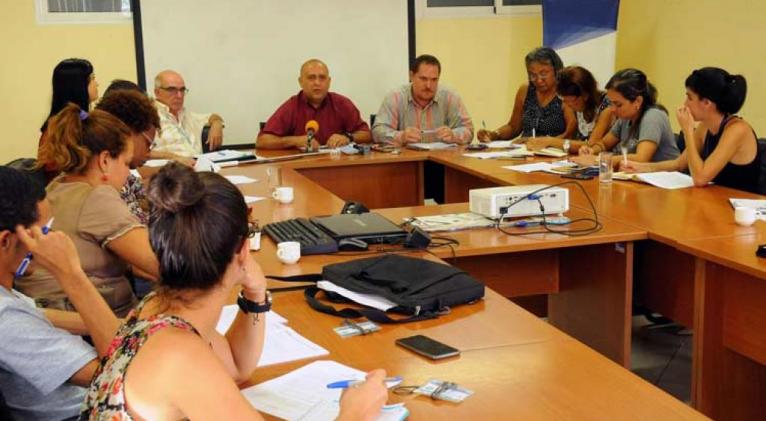Cuba Takes Measure to Advance Computerization of Society
especiales

New regulations have come into force on Thursday in Cuba to promote the organization, development and use of Information and Communication Technologies (ICTs) and strengthen security in the national cyberspace.
The legal regulations (a law decree, two decrees, an agreement by the Council of Ministers and six resolutions from the Ministry of Communications), were published on Thursday in the Official Gazette and are part of the policy implemented by the Cuban Government since 2005 to computerize society.
At a press conference, Wilfredo Lopez, director of Regulations at the Ministry of Communications (MINCOM), the institution in charge of the program, explained that for the first time, high-level legal regulations are issued to order that policy.

They are targeted at national legal entities and individuals, establish the responsibilities of each institution in the computerization of society and allow updating the regulations related to national security, he pointed out.
He added that they also allow ordering and knowing about the applications and programs being developed and commercialized in Cuba, and those in charge of implementing electronic commerce.
Lopez noted that the new regulations promote the development of scientific technological parks as part of the industry, and strengthen the linkages of research, development and innovation among universities, local governments, producers of computer applications and research centers.
Among the new regulations, the MINCOM official mentioned Decree 359, which determines the scope of the Cuban software and application industry to promote, improve and increase national production, exports and the reduction of imports.
He underlined that Decree 360 regulates the use of ICTs, the defense of the national cyberspace, and the services and applications that support those technologies, as well as their critical structures.
For the first time, he said, the digital signature with a legal force will be available to legal entities, while digital data protection in electronic support will at their disposal too.
For his part, Ernesto Vallin, director of the computer industry, noted that the institutions that contribute to the production of applications and services, including the Ministry of Education, are recognized.
There are also guarantees to prioritize the hiring of graduates in state enterprises, to teach languages, and the institutions that work in the protection of technological sovereignty are defined, he added.
As part of the process to computerize Cuban society, in late May, the Ministry of Communications issued Resolution 98 on the Use of Wireless High-Speed Systems, and Resolution 99 on Private Data Networks.













Add new comment